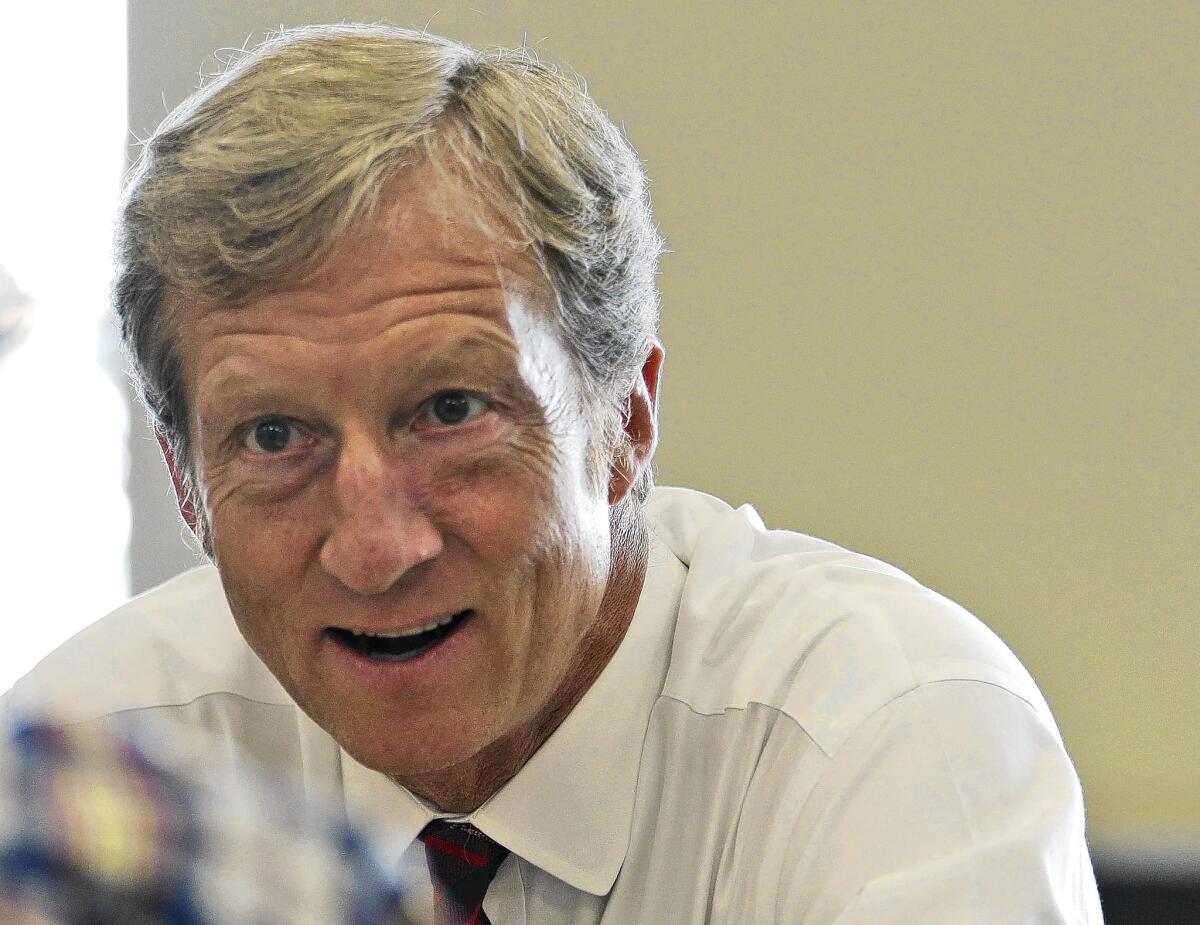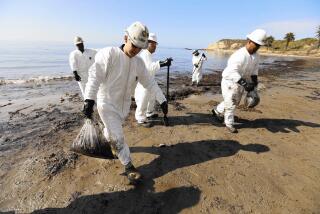Keystone XL pipeline opponent cites terrorism concerns

- Share via
Reporting from WASHINGTON — Billionaire Democratic donor and environmental activist Tom Steyer opened a new front Wednesday in his campaign to derail the Keystone XL project by commissioning a study of the oil pipeline’s vulnerability to terrorism.
The three-month study, conducted by former Navy SEAL David M. Cooper, concluded that Keystone XL was an especially attractive target for terrorists because of its high political visibility and route through parts of the Ogallala aquifer, which is the source of drinking water for millions of people in the Plains states.
Cooper said he conducted the study by using publicly available information that anyone planning a terrorist attack could find, relying on such sources to determine Keystone XL’s path and the thickness of the pipe.
“I found that a handful of terrorists could use just four pounds of explosives at each of three pump facilities located” along the route “to cause explosions that could trigger a catastrophic spill of 7.24 million gallons,” he wrote, according to a redacted version of the report provided to the media.
Steyer spokesman Mike Casey said he presented an unredacted copy to the State Department on Monday. The State Department has finished its environmental impact study of the proposed pipeline from Alberta, Canada, to Steele City, Neb., and is conducting a wide-ranging “determination of national interest,” which would consider, among other things, security issues.
A final decision on granting Keystone XL a permit needed to cross the U.S. border has been delayed indefinitely because of a lawsuit in Nebraska. From there, oil would be transported in an existing pipeline that runs to refineries along the Texas Gulf Coast.
“We noticed what seemed to us to be an absence of discussion around pipeline security,” Casey said of the decision to commission the study. “We thought it might be an important contribution.”
TransCanada, Keystone XL’s owner, dismissed the report as a propaganda stunt. “There are 2.5 million miles of pipelines in the U.S. — enough to circle the globe 100 times. Keystone XL is just 1,100 miles. Did Tom Steyer study other pipelines to assess their threats of attack as well? Why has Tom Steyer, who is committed to killing Keystone XL and the jobs and energy security it would provide, solely focused on this pipeline alone?”
Viewed as the liberal answer to the conservative Koch brothers, Steyer has made addressing climate change his touchstone issue. Like most environmentalists and many climate scientists, Steyer contends that granting Keystone XL a permit would lead to a boom in Alberta’s oil sands development and worsen climate change.
The Bay Area former hedge-fund manager has pledged to raise $100 million, starting with $50 million of his own money, to oppose candidates in the 2014 congressional midterm races who deny man-made climate change. He has already put several million dollars into organizing and advertising efforts to persuade the Obama administration to deny Keystone XL a permit.
Contacted by Casey in early March to perform the assessment, Cooper said he “was given free rein” and has never spoken to Steyer. A 25-year veteran of the SEALs, Cooper said he “devised training scenarios” for the team that killed Osama bin Laden, but remained in Afghanistan during the raid into Abbottabad, Pakistan. In Afghanistan and Iraq, Cooper said, he often assessed the threat to buildings and infrastructure, though the Keystone report marked his first commercial assessment.
Although he said he had no opinion about building the pipeline at the start of the assessment, Cooper said his research had convinced him that “right now, with what we know of the vulnerabilities, I don’t think we should put this pipeline in the ground until we deal with those vulnerabilities.”
More to Read
Sign up for Essential California
The most important California stories and recommendations in your inbox every morning.
You may occasionally receive promotional content from the Los Angeles Times.














